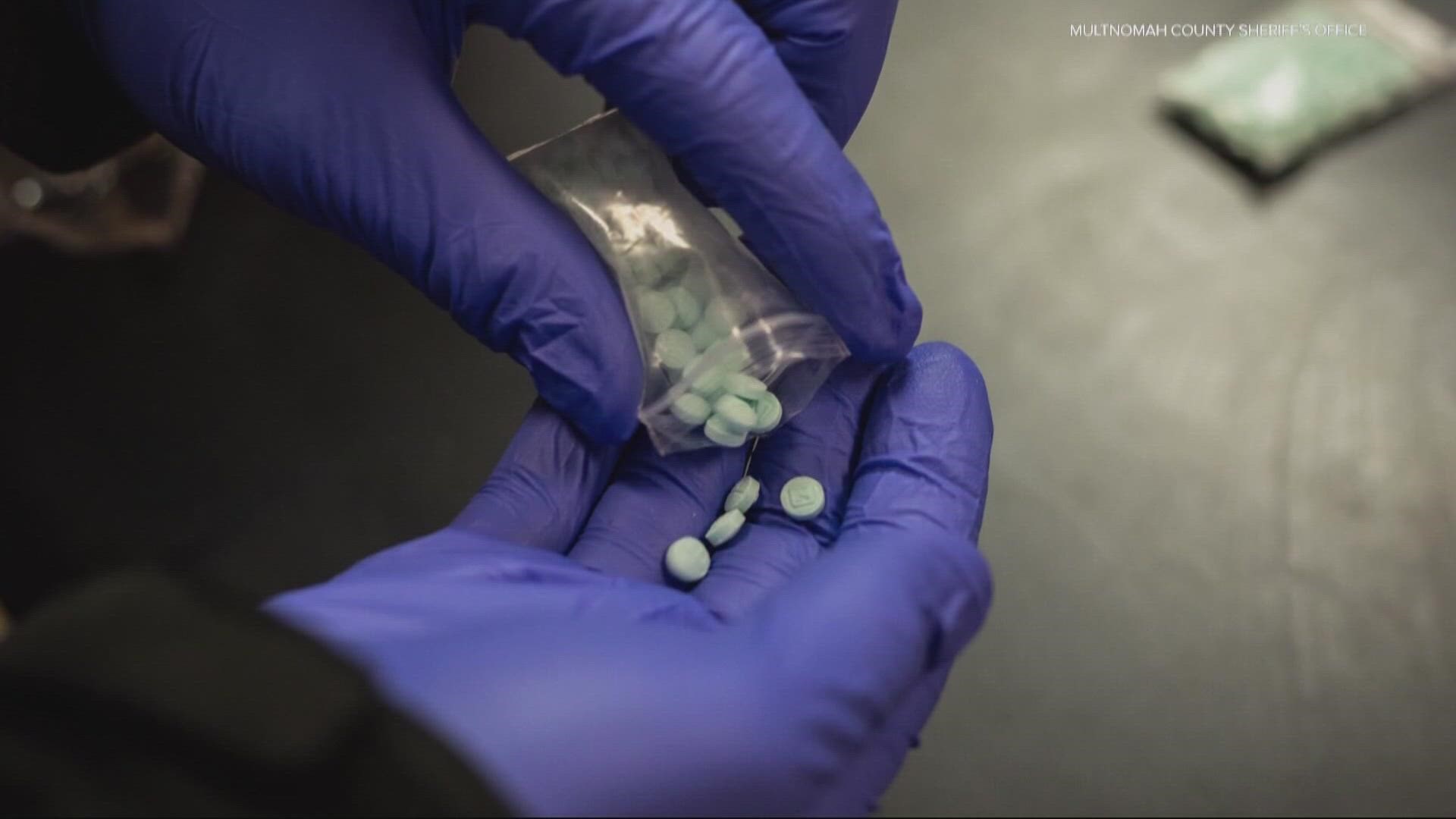PORTLAND, Ore. — Illegal fentanyl is fueling a surging public health crisis in Oregon and it is having a deadly impact on teens, according to health experts at Oregon Health and Science University.
That was the topic of a roundtable discussion Wednesday, hosted by OHSU. Health professionals, advocates, and parents shared their knowledge and experience in a call to action for more education and awareness about counterfeit opioids.
“You need to recognize the youth in your life are at risk - even when they don't fit a traditional at-risk profile,” advocate and parent Jon Epstein said.
Last year, Oregon overdose deaths increased by 41%, compared to a 16% increase nationwide, according to the National Center for Health Statistics.
“Every death is preventable, and we can do better,” Dr. Honora Englander said during the roundtable.
“It is a different beast and it is absolutely vital that we do what we're doing here today,” said Ana Hilde, a child and adolescent psychiatrist.
Fentanyl, a synthetic opioid, is 50 to 100 times more potent than heroin, cheaper and easier to manufacture, and more addictive. It also carries a greater risk of overdose, especially for young people with no experience using opioids.
In December 2020, Jennifer and Jon Epstein lost their son, Cal, to fentanyl poising.
“Cal, he made it to the hospital, but we never saw him alive again. Our family was forever changed. Our immediate family, our extended family, as well as our community, is forever changed by his loss,” Jennifer Epstein said.
Cal’s story is one that has become increasingly familiar around the state. He took, what he thought was oxycodone, but the pill was actually fentanyl.
“Since Cal's death we have learned a tremendous amount of fentanyl fake pills and the deception that is going on by drug dealers,” Jennifer said.
The two are now on a mission to prevent other families from going through the same tragedy. They work with the national nonprofit Song for Charlie. It is a family-run nonprofit that raises awareness about "fentapills" – fake pills made of fentanyl.
“This particular component of the opioid epidemic or the overdose epidemic is really new and different,” Jon Epstein said. “And the counterfeiting a deception issue — put those things together and you have a really lethal combination. These pills are everywhere. There's a hockey stick of growth of these counterfeit pills and they can't be told apart.”
Even as the death toll continues to rise in Oregon and around the country, Epstein says, many teens do not fully understand the risk.
“In our research that we've done nationally, only one-third of teens know what fentanyl is,” he said.
Wednesday’s roundtable called for more awareness at every level, including legislative, to broaden access to education and treatment.
“We need to educate families, we need to educate students, teachers, coaches, health care professionals so they can talk to and screen their patients,” medical director of the Harm Reduction and Bridges to Care clinic, Dr. Bradley Buchheit said.

